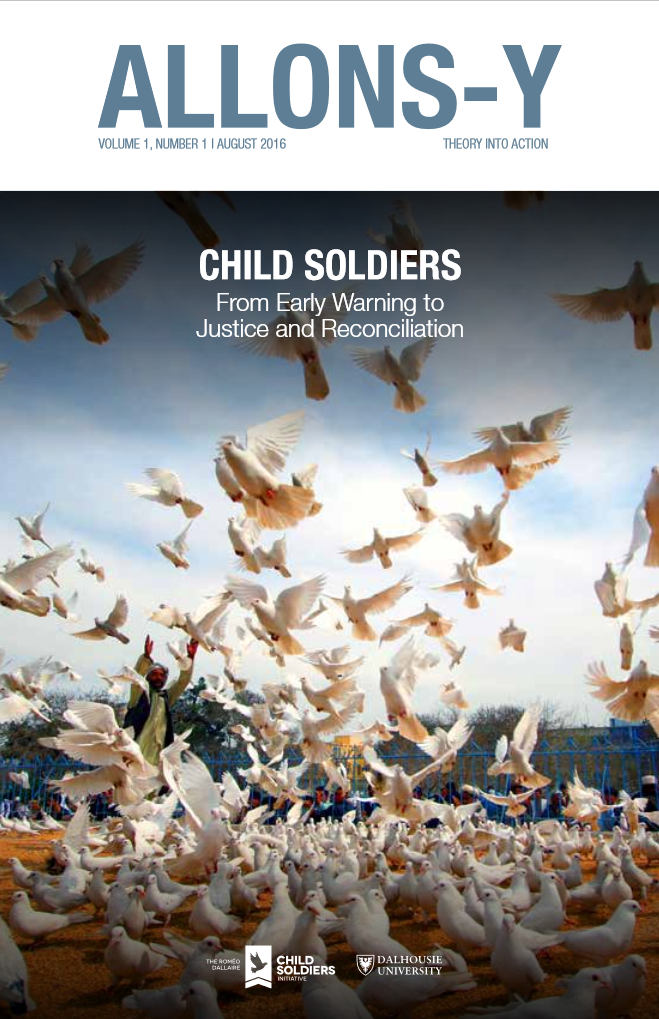Letter from the Editor
Résumé
Within this issue of Allons-y, two talented graduate students provide fascinating examinations of the present-day use of child soldiers. In the 21st Century, children are the primary victims of war, but their use as soldiers is also a primary driver of conflict, one which requires a comprehensive and holistic approach. This publication aims to promote interdisciplinary praxis to contribute to ending this scourge of modern warfare.
Michelle Legassicke, a PhD candidate in political science at Dalhousie University and a Research Fellow here at the Dallaire Initiative, examines the prevalence of children in cattle raiding in South Sudan prior to the outbreak of the civil war there in 2013, and how this correlates to the levels of violence experienced during the war, showing its utility as an early warning indicator. This war is one of the gravest on the planet, with actions amounting to genocide, which the international community has abjectly failed to prevent.
Jacqueline Salomé, a research assistant at Indigenous and Northern Affairs Canada, examines the use of restorative justice for former child soldiers, and the failure to apply it to child pirates, arguing that it is important to apply this form of justice to all militarized children and not selectively to only those who do not directly threaten Western interests, and that it can serve as a powerful preventative mechanism. Despite the commonalities among children used in war, criminal enterprise, and terrorism, the opposite responses applied to children depending on how we label them undermine the commitments that almost all nations have made to upholding the rights of children.
Each of these pieces is accompanied by an expert commentary, situating it in the broader context and commenting on its importance for practitioners. Nicholas Coghlan, Canada‘s ambassador to South Sudan from 2014 to 2016, comments on Michelle‘s piece, and Kenneth Watkin, comments on Jaqueline‘s piece. All too often in our work there is a gap in interaction, discussion, and learning between academics and practitioners; and a gap in time between when data is collected and when academic research on that data gets published. Allons-y attempts to address these gaps, and the expert commentaries are a key part of this. They both increase interaction between practitioners and academics, and situate the academic pieces in the present moment in our rapidly changing world.
As editor of Allons-y, I hope that these insightful pieces will stimulate further thought and debate among academics and practitioners and help to advance the importance of children to the peace and security agenda.





